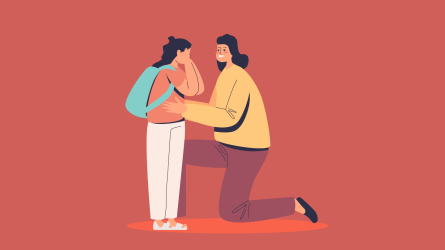A recent survey titled “Mental Health in the Classroom: The Impact on Kids, Teachers, and Working Parents,” conducted by RethinkFirst, has reported that 70% of parents missed work in the past year to take care of their child’s mental health.
It has shed light on the significant toll parents face in terms of missed workdays to support their children’s mental health and academic performance. This trend could potentially have a lasting economic impact.
Survey States Parents Missed Work For Mental Health-Related Appointments
The survey, which gathered responses from over 2,000 parents nationwide, revealed that more than half of the parents had to take up to four days off work during the school year.
These days off were often needed for mental health-related appointments, staying home with their children during related absences, or attending Individualized Education Program (IEP) meetings or parent-teacher conferences.
The data analysis conducted by RethinkFirst suggests that the collective time parents take off work to assist their children could amount to a staggering $65 billion in lost productivity annually for the U.S. economy.
Daniel Etra, CEO and co-founder of RethinkFirst, emphasized the pressing concern: “Students continue to struggle with their mental health and are still catching up academically from pandemic-related disruptions, forcing parents to take time off to address the urgent needs of their children.”
He also highlighted the importance of employers stepping up to offer mental and behavioral health benefits, especially for children facing learning and developmental challenges, in order to support both employees and their families effectively.
The survey delved into a range of aspects related to students’ emotions, the availability of resources in schools for mental health support, and the extent of time parents took off work to assist their child’s mental health and academic progress. The key findings include:
Majority of Parents Taking Time Off:
A significant 74% of all surveyed parents took time off work during the school year to support their child’s mental well-being or academic performance. This ranged from just a few hours to more extended periods.
Extent of Workdays Missed:
Around 60% of parents reported missing at least one day of work, while 32% had to take four or more days off.
Impact on Parents of Neurodiverse Children:
Parents of neurodiverse children felt a more substantial impact, with 83% having to take time off work compared to 69% of parents of neurotypical children. Moreover, 34% of parents with neurodiverse children were taking four or more days off annually.
Diversity in Time Off:
The need for time off to address students’ needs transcended various demographics. It remained consistent across genders, marital status, income levels, and whether the children were neurodiverse or neurotypical.
The survey revealed that only one in four employers believed their benefits effectively supported working parents.
This survey underscores the urgent need to address the increasing demands placed on parents to support their children’s mental health and academic well-being.
It also highlights the potential role of comprehensive employee benefits in alleviating this burden and improving overall productivity and well-being.









